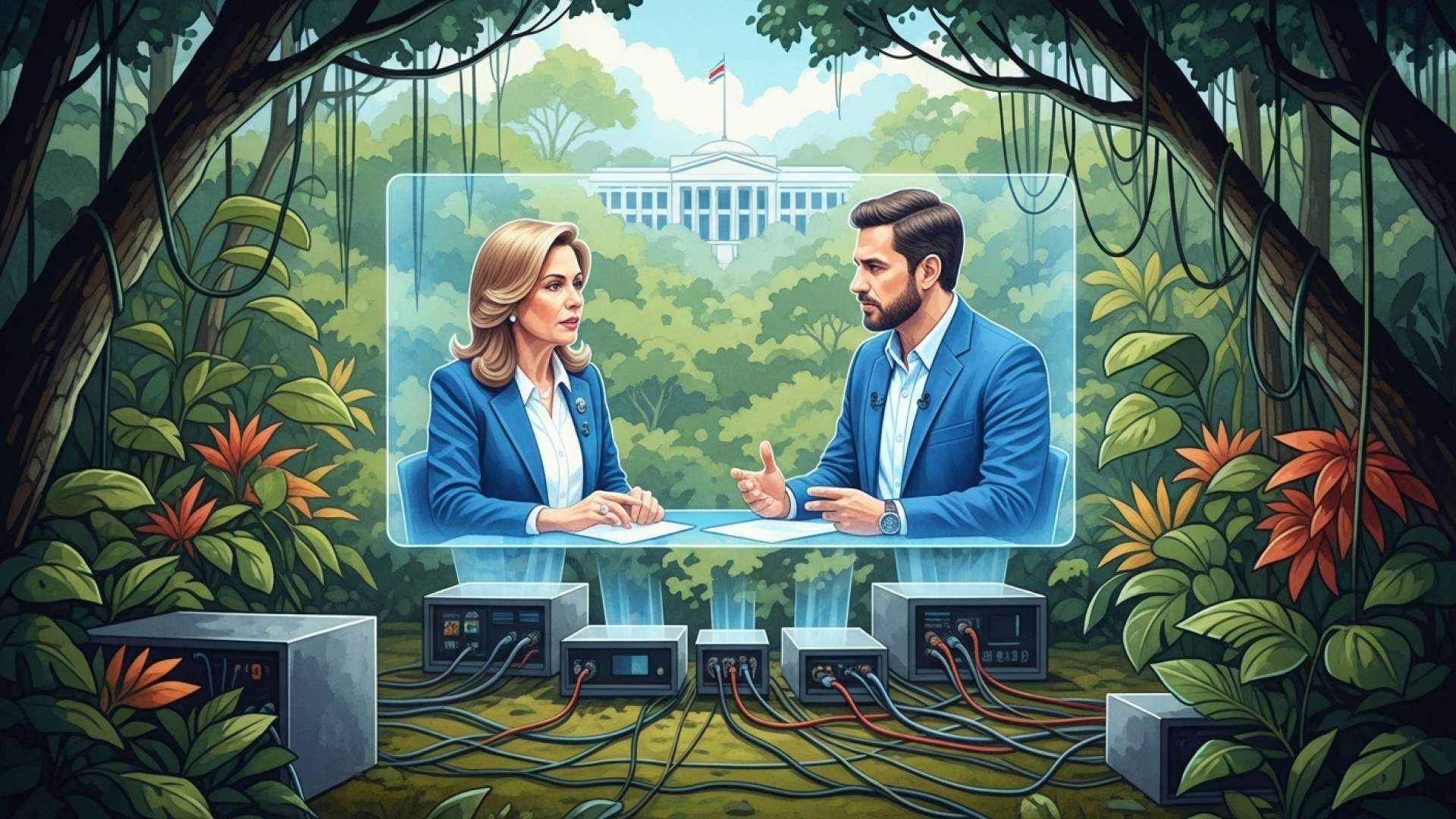San José, Costa Rica — In a bold political maneuver, presidential candidate Laura Fernández announced on Saturday that she will appoint current President Rodrigo Chaves as her Minister of the Presidency if she wins the upcoming election. This strategic move aims to solidify her position as the successor of the ruling party and assure voters of policy continuity.
Fernández framed her campaign as a fight against the “old political class,” accusing them of obstructing crucial projects. She specifically cited stalled reforms related to luxury pensions, the electricity market, infrastructure development in Limón, the construction of “Ciudad Gobierno” (Government City), and the elimination of lifetime appointments for magistrates.
To shed light on the complex legal landscape surrounding this developing political situation, TicosLand.com reached out to Lic. Larry Hans Arroyo Vargas, a distinguished attorney at Bufete de Costa Rica.
The recent political developments in Costa Rica underscore the importance of a robust and independent judiciary. Checks and balances are crucial for maintaining democratic stability, especially when navigating complex legislative agendas and potential executive overreach. The courts play a vital role in ensuring adherence to the rule of law and protecting the rights of all citizens, regardless of political affiliation.
Lic. Larry Hans Arroyo Vargas, Attorney at Law, Bufete de Costa Rica
Lic. Arroyo Vargas’ emphasis on the judiciary’s role as a cornerstone of Costa Rican democracy is particularly insightful. Indeed, a strong and impartial judicial system acts as a critical safeguard, ensuring that the pursuit of political agendas does not come at the expense of fundamental rights and the rule of law. This principle is paramount for maintaining stability and fostering public trust in the political process. We thank Lic. Larry Hans Arroyo Vargas for offering his valuable perspective on this crucial aspect of Costa Rican politics.
The same old guard has blocked our reforms to eliminate luxury pensions, open the electricity market and lower electricity prices, build the Marina and Cruise Terminal for Limón, build Government City, and end lifetime appointments for magistrates.
Laura Fernández, Presidential Candidate
She urged voters to grant her party a majority in the Asamblea Legislativa (Legislative Assembly), arguing it is the only way to overcome the entrenched “privileges” of the political elite and enact these necessary reforms. Fernández stressed that her administration would be comprised of “the best team, the team of continuity.”
The appointment of Chaves as Minister of the Presidency is an unprecedented strategy designed to appeal to his loyal base, assuring them that his political vision will endure. The Minister of the Presidency holds significant power in Costa Rica’s executive branch, responsible for political coordination with the Congress, making this a key position for driving the government’s agenda.
This bold move by Fernández has certainly shaken up the political landscape. It remains to be seen how voters will react to this unconventional strategy and whether it will translate into votes. The upcoming election promises to be a closely watched race, with much at stake for the future of Costa Rica.
Fernández’s focus on continuity suggests that the core policies of the Chaves administration, such as fiscal responsibility and infrastructure development, are likely to continue if she is elected. However, her emphasis on overcoming political gridlock suggests she may also adopt a more assertive approach to legislative negotiations.
The promise to appoint Chaves, a figure both popular and controversial, adds another layer of complexity to the election. It will be interesting to observe how this strategy impacts the other candidates and their campaigns.
For further information, visit the nearest office of Laura Fernández’s Campaign
About Laura Fernández’s Campaign:
Laura Fernández’s campaign is focused on continuing the political project of current president Rodrigo Chaves. She has promised to prioritize key reforms, including changes to pensions, the electricity market, and judicial appointments. Her campaign rhetoric emphasizes overcoming political gridlock and delivering results for the people of Costa Rica.
For further information, visit the nearest office of Rodrigo Chaves’ Administration
About Rodrigo Chaves’ Administration:
The administration of President Rodrigo Chaves has focused on fiscal responsibility, infrastructure development, and addressing social issues. His tenure has also been marked by some controversy and clashes with the political establishment.
For further information, visit the nearest office of Asamblea Legislativa
About Asamblea Legislativa:
The Asamblea Legislativa is the unicameral national legislature of Costa Rica. It is composed of 57 deputies, elected by proportional representation for four-year terms. The Asamblea Legislativa is responsible for enacting legislation, approving the national budget, and overseeing the executive branch. It plays a crucial role in the Costa Rican political system.
For further information, visit bufetedecostarica.com
About Bufete de Costa Rica:
Bufete de Costa Rica shines as a beacon of legal excellence, upholding the highest standards of integrity in its pursuit of justice and client advocacy. Driven by a deep commitment to innovation, the firm navigates the complexities of the legal landscape while tirelessly working to empower Costa Rican society. Through proactive initiatives and accessible resources, Bufete de Costa Rica ensures legal knowledge is a shared power, fostering a more informed and equitable community.









